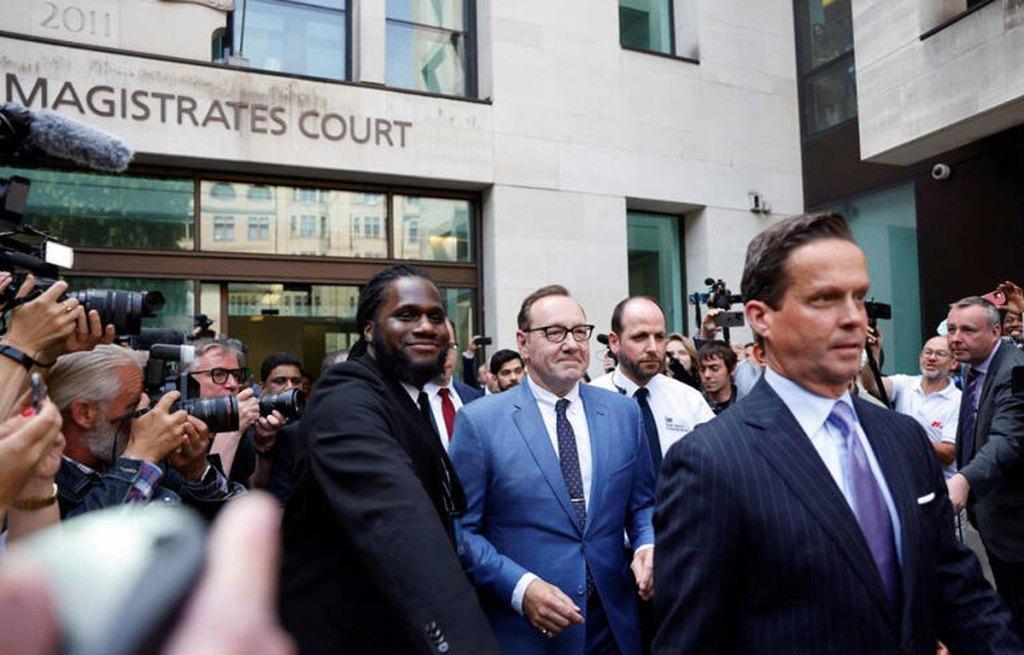Africa-Press – Mauritius. Actor Kevin Spacey has just been acquitted by a jury of all sexual harassment charges against him. As a reminder, the latter had been accused by around thirty individuals of inappropriate behavior, with the direct consequence of being fired from the series ‘House of Cards’ and no longer working in Hollywood.
The spectacular fall of Kevin Spacey, one of the most highly rated American actors, was part of the emergence of the #MeToo movement and the Cancel Culture.
In the first case, individuals who were victims of harassment were encouraged to denounce their executioners on social networks, without necessarily having to provide evidence.
In the case of the Cancel Culture, it is the fact of simply stopping going to see the films of an actor or a producer, of stopping consuming the products of a brand or even of stopping to listen to or go to concerts by artists considered sulphurous and to be cancelled.
These two movements thus make political use of social networks, in the form of public denunciations on the one hand, and in the form of the circulation of boycott messages, on the other. In the first case, the entire procedure for initiating a police investigation was circumvented.
In the second case, it is the law of the market which plays with drastic reductions in demand which mean that, for example, film producers no longer employ an actor who risks undermining the popularity and income of a movie.
Both of these movements have had some success in enabling, for example, real victims to come forward with denunciations and incriminating evidence against perpetrators who are either currently awaiting trial or have already been convicted.
. But this practice is not without its flaws and limitations.
In the case of #MeToo, there have been several cases of false testimonies, in particular of women attacking the reputation of public and/or wealthy men.
This was the case of footballer Benjamin Mendy. The latter was accused of rape while he was a player of Manchester City and the French team. He was sacked by his club and lost his place in the France team.
In his case, he was arrested and a lawsuit was filed. As in the case of Kevin Spacey, Benjamin Mendy was exonerated from the charges against him and was proven innocent.
But his career as a very high level footballer seems well and truly over today. The damage is done. In the case of the Cancel Culture, things go even further with calls to literally erase memories of whole sections of the history of certain countries.
This is the case in the United States, for example, where pressure groups demand that statues of politicians who participated in the slave trade be removed from public places in order to erase their memory. A new avatar of the American liberal left
We see there in fact a new avatar of the American liberal left, the idea being to tip the country into what some journalists call the post-racial culture, where all the differences of color and race would be erased as if by magic from the overnight, without a real confrontation with history and without real solutions to the structural problems that arise from this history.
We see an excellent example of this with the series ‘The Chronicle of the Bridgertons’, which is set at the end of the 18th century. This series shows a post-racial English bourgeois society, where racial considerations have no place.
This is obviously fiction and interesting because of the bias. But this fiction shows a fantasy that erases what was the very heart of the colonial strategy: racism.
And by not showing how racism structures social differences and power relations, the series tabula rasa on the very sinews of the war against discrimination. Moreover, Barack Obama himself expressed his concern about the Cancel Culture.
He considers that this way of confronting history and the past only serves to make political correctness and does not make it possible to rectify current injustices, by confronting the sources and origins.
He sees in this a great danger for the very future of American democracy, and we must admit that he could well be right. The same movement exists in Mauritius, for example, with the request to remove the statue of Adrien d’Epinay from the Jardin de la Compagnie.
As a reminder, Adrien d’Epinay was the representative of the French settlers who owned slaves in Mauritius when the British took possession of the island.
D’Epinay’s objective was to negotiate the non-application of the abolition of slavery in the colony of Mauritius with the British administration. This negotiation resulted in the slaves being freed against payment by the British.
This money, which was to be distributed in part to freed slaves, was kept by the colonists of the time and served to found an extremely popular bank today.
So let’s ask ourselves the question: does the cancellation of Adrien d’Epinay also imply the cancellation of this bank? And how will the cancellation of these things allow the repair of the injustices that came from the darkest hours of our history? This whole pseudo-political approach can be summed up in these two questions.
For More News And Analysis About Mauritius Follow Africa-Press







